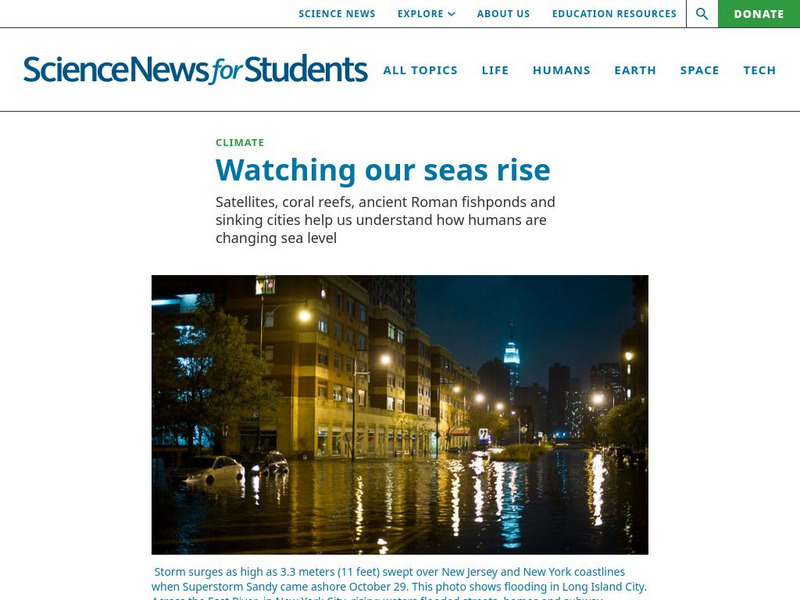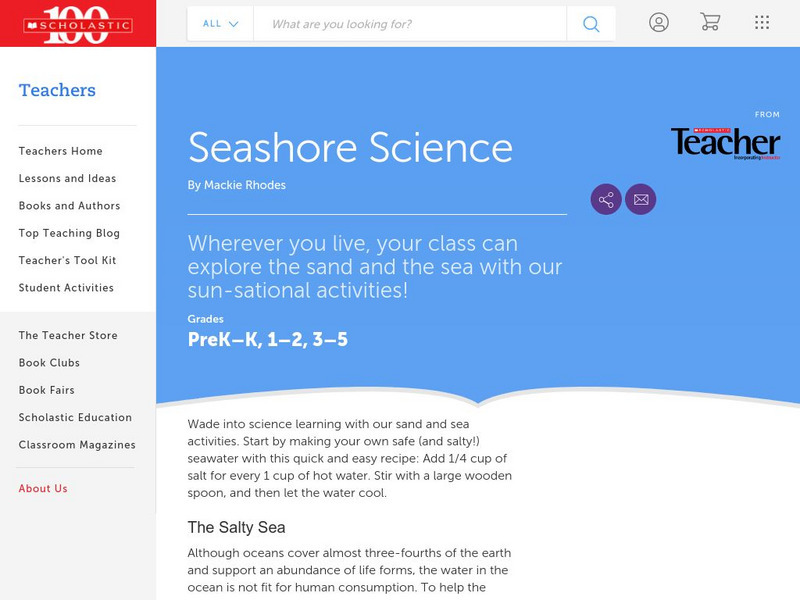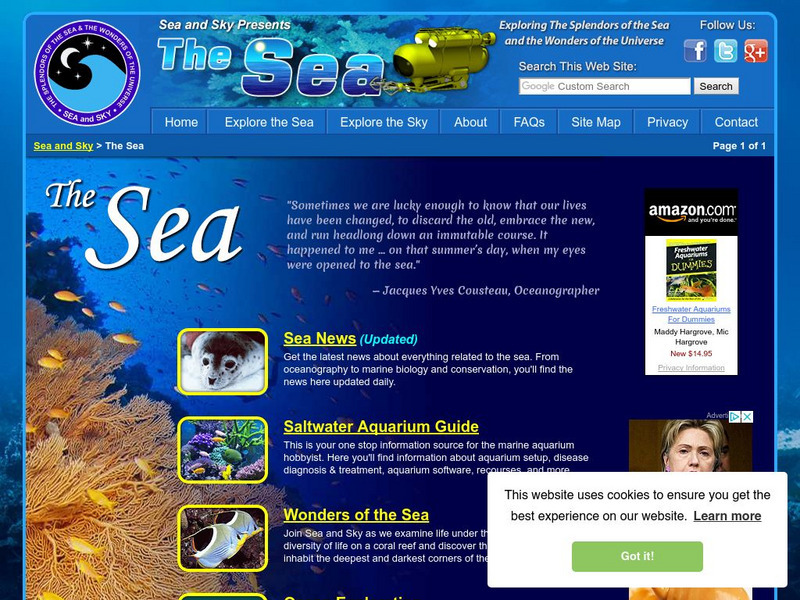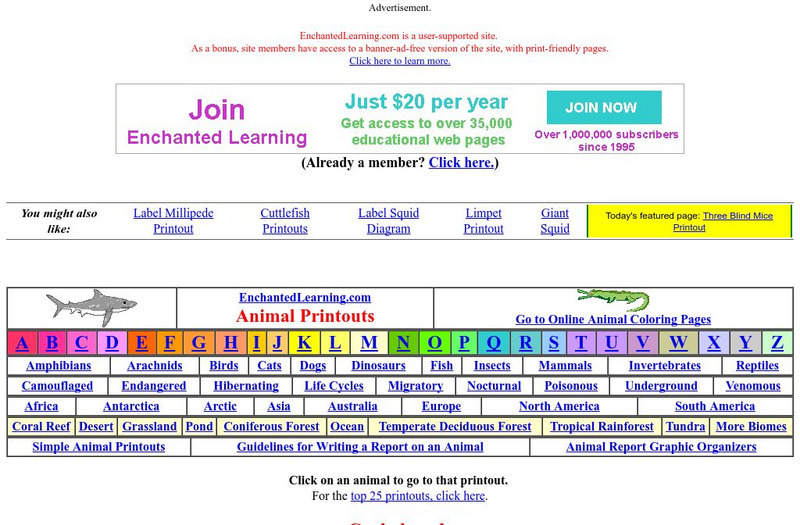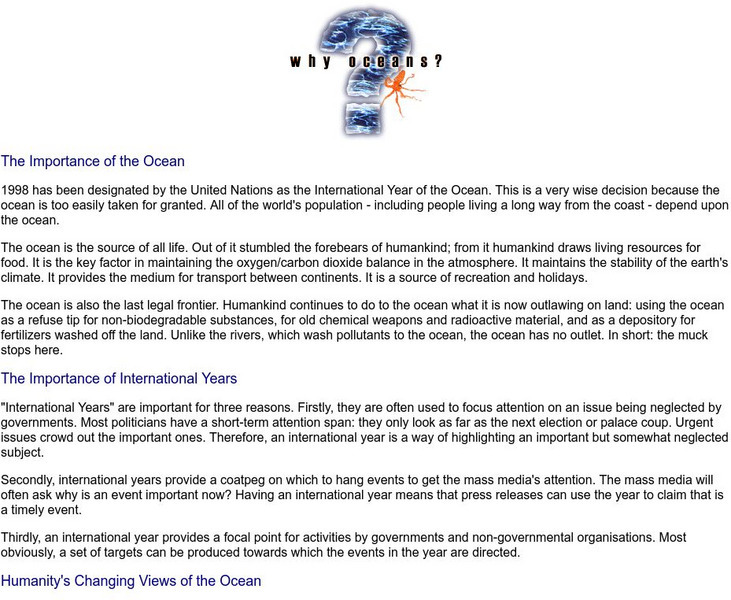Curated OER
Under the Sea - KWL Chart
Students create a KWL chart to start the discussion on ocean animals. They practice sorting the animals into their different classifications. They use indexes, table of contents and glossary to find information.
Curated OER
Geography A to Z: Letter O
The world is full of places that start with the letter O. It's true! Your class can use what they know about geography to answer seven curious questions related to world locations that all begin with letter O. Like Ohio, Ottowa, and...
Curated OER
Where in the World Is…
Students identify countries, oceans, states, and more on a globe and on a flat map. In this geography lesson plan, students also locate places around their school.
Curated OER
What Do You Know About Oceans?
Students brainstorm and discuss what they know about oceans and seas, read poem My Ocean Speaks by Olga Cossi, discuss narrator's feelings about ocean, write reflective journal entries about their experience or inexperience with the...
Curated OER
Ocean -- Under The Sea
Young scholars participate in hands-on activities dealing with what lives in the ocean. They also read literature about the oceans.
NASA
Jet Propulsion Laboratory: Global Climate Change: Sea Level Viewer
This viewer allows you to see ocean heat storage from space. These images indicate sea surface heights. Learn more about El Nino and La Nina and how they have profound effects on world climate.
Missouri Botanical Garden
Missouri Botanical Garden: What's It Like Where You Live? (Oceans)
This site contains a wealth of information. You can click on shorelines, temperate oceans and tropical oceans. Each page contains links to even more information.
BBC
Bbc Nature: Wildlife: Shallow Seas
Investigate the fascinating world of the shallow seas and discover what lives and grows there through pictures, news, and external links.
Museum of Science
Museum of Science: Looking at the Sea
There are 5 parts to this resource. You can click on the water planet, oceans in motion, life in the sea, scientists at sea and resources. There are also activities for teachers.
Library of Congress
Loc: Everyday Mysteries, What Are the Seven Seas?
When did we develop the phrase "seven seas"? Read about the arguments over the concept and find out how many seas may truly exist.
Society for Science and the Public
Science News for Students: Watching Our Seas Rise
Ocean levels are increasing around the world. Find out why this type of climate change has scientists concerned.
Australian Broadcasting Corporation
Australian Broadcasting Corporation: Oceans Alive: Cool, Wet Facts
Did you know that turtles migrate 1400 miles to lay their eggs? Did you know that penguins swim underwater at 55 MPH? Click on this site to learn more interesting facts.
Scholastic
Scholastic Instructor: Seashore Science
Come and learn with this incredible seashore science resource. The content includes fun facts, experiments, reproducible activities, resources and more.
National Earth Science Teachers Association
Windows to the Universe: Earth's Oceans
Windows to the Universe provides a general overview of the importance of the oceans and seas to the Earth. Content includes information on how the oceans impact Earth's weather and contribute to the water cycle.
Other
Sea Sky: Explore the Sea
Climb aboard this submarine and explore the sea. This site has pictures and information about the oceans, coral reefs, as well as famous explorers of the deep. You can also play interactive games.
Enchanted Learning
Enchanted Learning: Cephalopods
This site provides links to elementary information about cephalopods. Students and teachers will find links to the blue ring octopus, the giant squid, the cuttlefish, octopus and more.
Australian Broadcasting Corporation
Australian Broadcasting Corporation: Monsters of the Deep: Tons of Tentacles
Read about octopuses and squids. Learn about their tentacles and other parts of the body.
Other
Vocabulary Training Exercises
This site contains multiple vocabulary tests of 100 words each that drill word sets from animals to words of the soul. It also contains grammar quizzes and a personalized test generator.
National Earth Science Teachers Association
Windows to the Universe: Changing Planet: Sea Levels Rising
Students review topographic maps and use that knowledge to explore the impact sea level rise will have on coastal communities.
Australian Broadcasting Corporation
Australian Broadcasting Corporation: Why Oceans?
This site, which is provided for by the Australian Broadcasting Corporation, gives an article on the importance of the ocean. Everyone on earth depends upon the oceans. Learn why oceans are important and what Australia is doing to help...
Digital Dialects
Digital Dialects: Geography Games: Oceans and Seas
Study a labeled world map showing the oceans and seas, and then try to match their names to their locations on a blank map.
Australian Broadcasting Corporation
Australian Broadcasting Corporation: Training Seals at Taronga Zoo
This site, which is provided for by the Australian Broadcasting Corporation, gives information on training seals. How do you train seals? What do they use their whiskers for? How do they walk? Click on this site and find out the answers...
ClassFlow
Class Flow: Ecosystems
[Free Registration/Login Required] This flipchart explores the different ecosystems of the world, enhanced by embedded videos showing both the landscape and the plants and animals that can be found there.
ClassFlow
Class Flow: India
[Free Registration/Login Required] This flipchart explores the physical features of India, and contrasts them with Wales. It supports other resources from the NGfL Cymru website about India. There is a link to those on the first page of...












